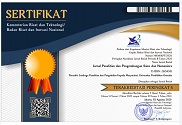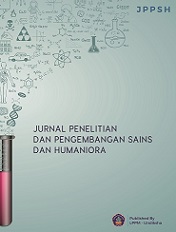Analysis of Learning Higher Order Thinking Skill (HOTS) Toward English Subject
DOI:
https://doi.org/10.23887/jppsh.v3i2.21278Keywords:
Assessment, Higher Order Thinking Skill (HOTS), Lesson PlanAbstract
In line with the 21st century learning of education, 2013 Curriculum (k-13) highlights the development of critical thinking, problem analyzing, problem solving, decision making, and creating something new. It requires teachers to use the new paradigm in designing the lesson plan as well as the assessment, which indicate Higher Order Thinking Skill (HOTS). However, the implementation does not work properly as planned. Therefore this research aimed to analyze the implementation of Higher Order Thinking Skill (HOTS) in terms of designing the content of lesson plans and assessments at SMA Negeri 2 Banjar. This was a qualitative research employing a document study design. The subject of this study was the English teacher in SMA Negeri 2 Banjar. The data were collected qualitatively through observation, documentation and interview. The results showed that Higher Order Thinking Skill (HOTS) was not expressed in the whole of the lesson plan and the assessment, it was covered in several parts of the lesson plan as well as the assessment. The results has the implication for the English teacher to develop the implementation of Higher Order Thinking (HOT) in the content of the lesson plan and assessment holistically.Downloads
Published
2019-10-08
Issue
Section
Articles
License
Authors who publish with the Jurnal Penelitian dan Pengembangan Sains dan Humaniora agree to the following terms:
- Authors retain copyright and grant the journal the right of first publication with the work simultaneously licensed under a Creative Commons Attribution License (CC BY-SA 4.0) that allows others to share the work with an acknowledgment of the work's authorship and initial publication in this journal.
- Authors are able to enter into separate, additional contractual arrangements for the non-exclusive distribution of the journal's published version of the work (e.g., post it to an institutional repository or publish it in a book), with an acknowledgment of its initial publication in this journal.
- Authors are permitted and encouraged to post their work online (e.g., in institutional repositories or on their website) prior to and during the submission process, as it can lead to productive exchanges, as well as earlier and greater citation of published work. (See The Effect of Open Access)









